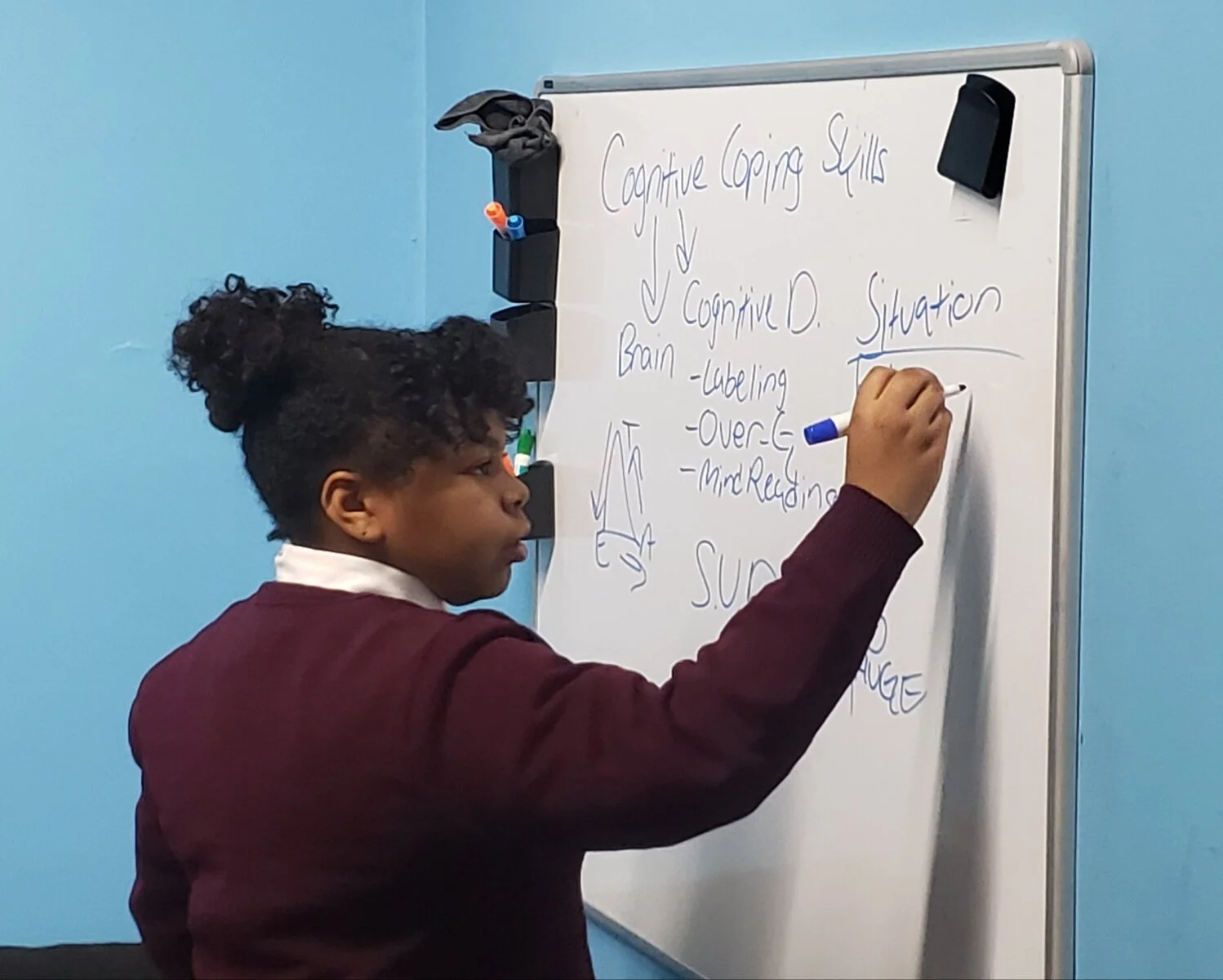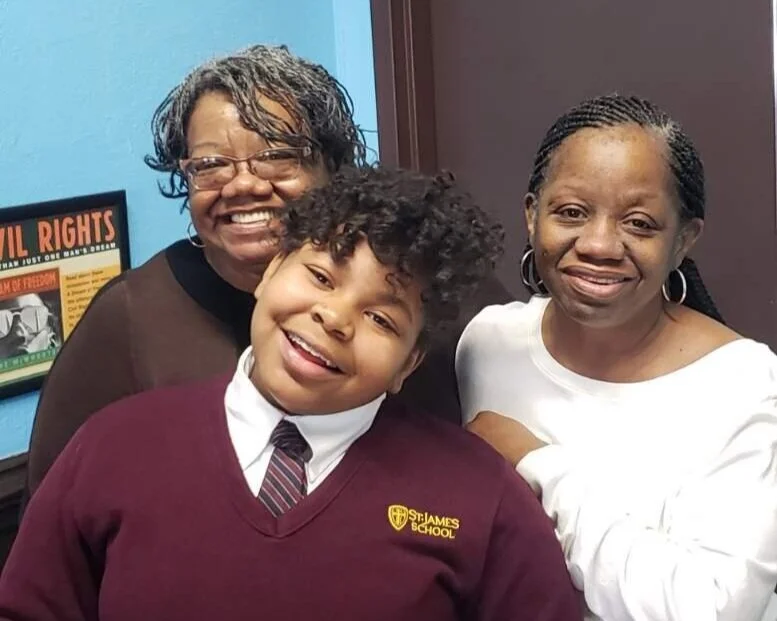Levi Lee, Director of Family and Student Support and Trauma-Focused therapist St. James School (Philadelphia, PA) piloted a new Trauma Course with students focusing on issues and topics related to Trauma. The objective of the course is to provide their students (5th, 6th, 7th, and 8th graders) with a concrete foundation for solving emotional and behavioral difficulties associated with single, multiple, and complex traumatic experiences. In addition, students will attain the necessary tools and skills needed to feel secure when helping a friend, family member, classmate, or themselves, when suffering from a traumatic situation.
6th grade student, Jonathan Reyes.
London Marshall explaining to the St. James faculty what are cognitive distortions and ways to untwist negative thinking.
Students learn the exact skills a master level clinician would learn to become a Trauma-Focused Cognitive Behavioral Therapist. They are introduced to and begin utilizing trauma-focused vocabulary/terminology such as the Amygdala, Hippocampus, Prefrontal Cortex, Affective Modulation, Subjective Unit Distress Scale (S.U.D.S), Cognitive Distortions, Cognitive Triangle. The course is as follows:
Week 1-2: Psycho-education
In phase one, students learn the foundation of Trauma-Focused Cognitive Behavioral Therapy. During this stage, the student comes to understand trauma, common reactions to traumatic situations, and the effects trauma can have on brain development.
Week 2-3: Relaxation Skills
In the second phase, students create awareness of the capacity to change from state of tense/distressed state to state of relaxation.
They learn specific skills (i.e; Mediation, Muscle Relaxation, etc) to help reverse the physiological arousal from the trauma, and reduce/calm distress at the moment (e.g., at home, school, in the community).
Week 4-5: Affective Modulation
Similar to the relaxation skills component, the student learns helpful strategies to identify, modulate, and regulate upsetting affective states that may arise, especially those that result from trauma. There are many ‘affect regulation’ skills and techniques that are covered in this component, including:
Problem-solving
Anger management
Present focus
Obtaining social support
Positive distraction activities
Using skills in relation to a trauma reminder
Week 6-9 Cognitive Coping Skill
The final component is the cognitive processing skills component. The students build skills necessary for coping with stress and achieving meaningful healing from trauma. During this stage, the students learn to:
Recognize the connections between thoughts, feelings, and behaviors.
Replace harmful or unhelpful thoughts with more accurate or more helpful ones.
Week 10-11 Mock Presentation and Final Presentation
The students present a final demonstration of their new knowledge and skills to their family, St. James faculty, and friends.
If you’d like to learn more, please contact Levi Lee via email: llee@stjamesphila.org




